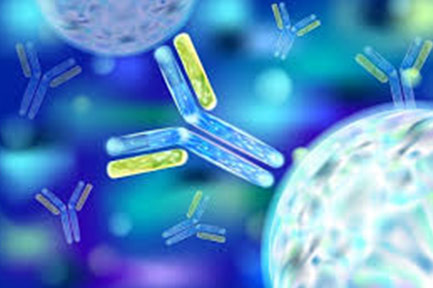Immunology
Immunology is the study of the body’s immune system and its functions and disorders. Autoimmunity represents a breakdown of the immune system’s ability to discriminate between self and non-self.
In autoimmune disease, immunoglobulins (auto-antibodies) or cytotoxic T cells display specificity for self-antigens or auto antigens and contribute to the pathogenesis of the disease.
The scope of clinical laboratory immunology is quite broad, with major implications for infectious disease, pediatrics, rheumatology, allergy and asthma, transplantation, nephrology, gastroenterology, neurology, cardiology, and oncology.
Immunology laboratories are responsible for testing many broad areas including the evaluation of autoimmune disease, immuno-deficiencies, immuno-proliferative disorders, and allergy, as well as having responsibility for some aspects of infectious disease serology.
Immunologic tests employ an antigen to detect presence of antibodies to a pathogen, or an antibody to detect the presence of an antigen, of the pathogen in the specimens of the victim.
Some examples of immunology tests are:
PSA: Prostate-specific antigen (PSA) is something made by the prostate gland. High PSA levels may be a sign of prostate cancer, a noncancerous condition such as prostatitis, or an enlarged prostate gland.
CA-125: The CA 125 test measures the amount of the protein CA 125 (cancer antigen 125) in your blood. A CA 125 test may be used to monitor certain cancers during and after treatment. In some cases, a CA 125 test may be used to look for early signs of ovarian cancer in people with a very high risk of the disease.
CRP: An increase in plasma concentrations of a group of proteins known as acute-phase proteins is a good indicator of local inflammatory activities and tissue damage. The acute phase proteins include C-reactive protein (CRP), inflammatory mediators (e.g. complement components C3 and C4, fibrinogen, etc). CRP is prominent among the acute-phase proteins. As a result CRP is a direct and quantitative measure of the acute-phase reactions. CRP is a method of choice for screening for inflammatory and malignant diseases and monitoring therapy in inflammatory disease.
ANA: Antinuclear antibodies (ANA) are a group of autoantibodies. The ANA test detects these autoantibodies in the blood. ANA react with components of the body’s own healthy cells and cause signs and symptoms such as tissue and organ inflammation, joint and muscle pain, and fatigue.
ANA specifically target substances found in the nucleus of a cell, hence the name “antinuclear.” The ANA test is one of the primary tests for helping to diagnose a suspected autoimmune disorder or rule out other conditions with similar signs and symptoms. The ANA test may be positive with several autoimmune disorders. Patients with SLE are almost always positive for ANA.
HCG: The Human chorionic gonadotropin (HCG) is a hormone secreted by placenta during pregnancy. Its production stimulates secretion of progesterone by the ovary. Human chorionic gonadotrophin is a glycoprotein.
EBV: The Epstein-Barr virus (EBV) is the cause of infectious mononucleosis. It is an important factor in the development of nasopharyngeal carcinoma, an epithelial cancer. The EBV infection is a human herpes DNA virus. In infectious mononucleosis the virus infects B-lymphocytes.
Thyroid antibodies: These tests detect the presence and measure the quantity of specific thyroid autoantibodies in the blood. These autoantibodies develop when a person’s immune system mistakenly recognises components of the thyroid gland or thyroid proteins as foreign (non-self) and can lead to chronic inflammation of the thyroid , tissue damage, and disruption of thyroid function.
In the thyroid, the primary hormones that it produces (thyroxine (T4) and triiodothyronine (T3)) are vital in helping to regulate the rate at which we use energy.
The body has a feedback system that utilises thyroid stimulating hormone (TSH) to help turn thyroid hormone production on and off and maintain a stable amount of the thyroid hormones in the bloodstream. When thyroid antibodies interfere with this process, it can lead to chronic conditions and disorders associated with (not enough thyroid hormones) or (excessive amounts of thyroid hormones).
Hypothyroidism can cause symptoms such as weight gain, fatigue, and hair loss. Hyperthyroidism can cause symptoms such as sweating, rapid heart rate, tremors, fatigue, difficulty sleeping, sudden weight loss, and protruding eyes.

